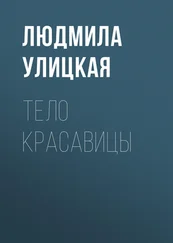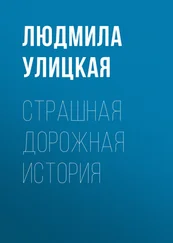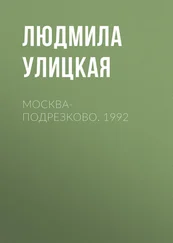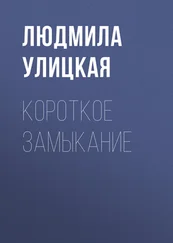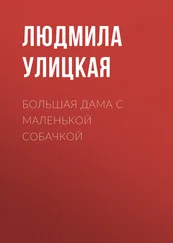as to the rock of sun-warmed granite
I pressed my head, still all at sea;
When from the depths of Freud’s dominions,
from darkling realms where sleep is host,
a wave propelled me to my kingdom,
like flotsam cast up on a coast.
And, as in concrete and in metal
there nestle empty voids, a thing
both void and strong had come to settle
in my room, an angel’s wing.
I thought I saw my angel weeping:
his heavenly eyes discerned with rue
the gruesomeness of lovers’ sleeping,
and wept for me and wept for you.”
“I think, Masha, that is a very good poem.” Alik was genuinely delighted. This was not one of those occasions when he felt obliged to express approval out of family solidarity.
“It’s the truth, Alik. I mean the poem. It’s not metaphor or imagination. His presence is real.”
“Well, of course, Masha, otherwise creativity of any kind would be impossible. It’s a metaphysical realm—” he began, but she interrupted him: “Oh, no! He comes to me, just like you. He’s taught me to fly and much more that I can’t tell you because it can’t be put into words. But here, listen:
“Behold how strained the seagull’s flight,
ungainly wings’ uncertain beating,
the tensing of her neck a fight
with wind and gravity, a cheating,
not to founder in the waves
while finding food beneath the surface.
Yet, Lord, you promise all the homeless
feathered wings and eyes that see,
in place of rags and penny pieces,
to soar and dance in heaven’s breezes
unrehearsed and faultlessly.”
“It’s such a simple little poem, and you wouldn’t really know from it that I was flying, that I was actually there, where flight is as natural . . . as everything . . .”
“You mean, hallucinations?” Alik asked anxiously.
“Oh no. They aren’t hallucinations. It’s like you, like this table, reality. Only slightly different. I can’t explain. I am like Kitty here.” She stroked the cat. “I know everything, I understand everything, but I can’t express it. Only she doesn’t suffer from that and I do.”
“But Masha, I can tell you everything comes through splendidly in your writing. It really works.”
He was speaking gently and calmly, but he was extremely disturbed. “Is it schizophrenia, manic-depressive psychosis? I’ll phone Volobuev tomorrow and ask him to see what it is.”
Volobuev, a consulting psychiatrist, was a friend of someone who had been in Alik’s class at the university, and in those times the guildlike community of doctors, a legacy from better times and better traditions, had not yet fallen apart.
But Masha was still reciting, unable now to stop:
“And on that day when free as birds,
transformed by my six-winged translator
beyond the wit of their creator,
burst forth in power my random words,
‘Let me depart’ shall be my supplication,
a coat of many colors consummation
of all my sins, ‘at last no more to roam,
Into my Father’s house, my heavenly home.’ ”
Still, Butonov would not leave Masha alone. She went to him in Rastorguevo three times more. It seemed that the note she had struck was so high that there was no going higher—her voice would break, everything would break. Only now, when every meeting felt as if it were the last one, did Butonov admit to himself that Masha had so far eclipsed her prototype, half-forgotten Rosa, that he could no longer even remember the face of his lost horsewoman; and now he no longer saw Masha as being in the likeness of Rosa, but that fleeting love affair seemed to have contained the promise of the present one. The inevitability of parting intensified his passion.
He had dropped the two or three other women who had been a simultaneous but less-than-crucial part of his life. One, whom he actually quite needed to keep sweet for his work, a secretary of the sports organizing committee, had given him to understand that she was offended by his neglect; the second was a client, a young ballerina for whom he had made an exception to his rule that the massage table was a work surface and not a suitable place for dalliance, who had fallen out of contention automatically when she moved to Riga. He really hadn’t seen Nike since December. They had phoned each other a few times, expressed a polite desire to meet, but neither had made the least effort to do so.
Butonov had a major career decision looming. He was fed up with sports medicine, the unvarying impact injuries he was constantly dealing with, and the no-holds-barred politicking associated with trips abroad. A timely offer had materialized: a rehabilitation center was being set up for high-ranking Communist Party and government officials and their families, and Butonov was a likely candidate to manage it. This held out a number of interesting possibilities. At the age of thirty-five his wife Olga had reached her professional ceiling, as happens with mathematicians, and she was egging Valerii on: a new direction; state-of-the-art equipment; you can’t spend your whole life running your fingers over the same old pressure points, etc.
Ivanov, by now wrinkled and yellow and with the passing years looking ever more like a Buddhist monk, warned him, “You don’t have the brain for it, and you don’t have the stomach for it.” His remark contained both respectful appreciation and a subtle put-down.
Butonov rated Nike’s judgment highly, especially since her very successful intervention in his interior decorating, and decided to consult her. He met her by the Maly theater and they went to a ghastly little restaurant on Taganskaya Square which, lying at the intersection of their routes, was at least convenient.
Nike was looking on top of the world, although everything about her was slightly de trop : the long fur coat, the short skirt, the large rings, and her flowing mane of hair. They chatted about this and that in an easy, cheerful way. Butonov explained his problem to her. She became unexpectedly severe, frowned, and told him abruptly: “Valerii, you know, in our family we have a very good tradition, which is to stay as far away from the authorities as possible. I had a close relative, a Jewish dentist, who put it splendidly: ‘In my heart I love Soviet power so much, but my body just won’t react to her.’ If you take this job, you will have to spend all your time cuddling that body.” Nike swore just within the bounds of acceptability, fluently and with great artistry.
Butonov felt a huge sense of relief. Her jocular swearing had answered his question. The Fourth Directorate’s rehabilitation center was off, as he gratefully informed Nike there and then.
Their friendly feelings for each other reached a sufficient temperature for them to finish their shashlyks and get into Butonov’s beige Moskvich and for Butonov, without needing to ask any further questions, to make a U-turn on Taganskaya Square and head for Rastorguevo.
Masha was suffering the most unbearable form of insomnia, when all possible sedatives have been taken and arms, legs, back, everything is asleep except for a small center in the brain which is transmitting the same signal over and over again: “I can’t sleep . . . I can’t sleep . . .”
She slipped out of bed, where Big Alik was sleeping with his knees drawn up to his chin, looking very small in this fetal position. She went to the kitchen, smoked a cigarette, put her hands under the cold tap, washed, and lay down to rest on the couch in the kitchen. She closed her eyes and again heard: “I can’t sleep . . . I can’t sleep . . .”
Читать дальше

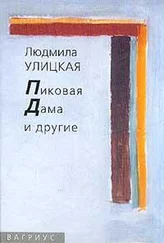
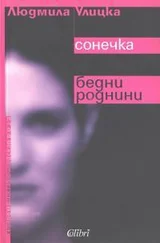

![Людмила Улицкая - Сквозная линия [litres]](/books/393468/lyudmila-ulickaya-skvoznaya-liniya-litres-thumb.webp)
